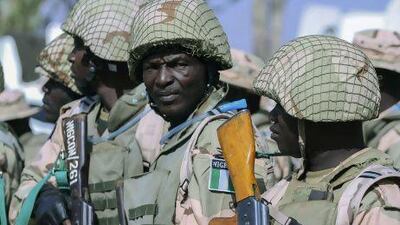France's decision to bomb Islamist rebels in northern Mali and commit troops to ground combat has provoked the first signs of doubt from limited but influential sources about the wisdom of intervention in its former African colony.
The French president, Francois Hollande, won broad support from western and African allies when he deployed air and ground forces to crush an insurgency he feared would otherwise spread south and threaten the Malian capital, Bamako.
But even before this week's seizure of western hostages in Algeria, British military chiefs had challenged assumptions that France would avoid being sucked into a protracted Afghan-style conflict.
French politicans have have already voiced their concern about the military campaign in Africa.
The Al Qaeda attack on the gasfield operated jointly by BP and Norway's Statoil has been described by the hostage-takers as a reprisal for the French action in Mali and its use of Algerian air space for bombing missions.
Some observers say the appetite for France's intervention could be diminished significantly by such factors as heavy military casualties or attacks on French interests. French nationals are among those held by the militants who stormed the gasfield on the Algerian-Libyan border.
The attack has focused renewed attention on the plight of French nationals already held in Mali and neighbouring countries by Al Qaeda in the Islamic Maghreb (AQIM), to which some of the rebels now confronted by France belong.
Aware that the history of French adventures in Africa, Mr Hollande has felt obliged to stress that France has no selfish interest in Mali. His foreign minister, Laurent Fabius, has promised that the military mission will last only a matter of weeks.
But writing in the newspaper, Le Journal du Dimanche, the former French prime minister, Dominique de Villepin, described France's mission in Mali as being ill thought-out, and "not the French way".
Although he is now sidelined from power and carries no electoral clout, Mr de Villepin commands respect in France as the politician who, as foreign minister 10 years ago, led French opposition to the US-led war on Iraq.
"Let us learn the lessons of a decade of lost wars in Afghanistan, Iraq and Libya," he wrote.
France was fighting blind without a real war objective, he added. "Stopping the jihadists from moving south, reconquering the north of the country and eradicating AQIM are all completely separate wars."
Predictably, the far-left leader, Jean-Luc Mélenchon, who was born in Tangier, has also criticised Mr Hollande's actions.
He said France had strayed beyond the terms of a UN-mandated plan for Economic Community Of West African States to deploy troops to recapture northern Mali from the rebels.
"The UN mandate stipulated that this was an African problem to be resolved by Africans," he said. "Doesn't Algeria, which shares a border with Mali, have an extremely advanced army?
"Resolving this situation is a job for Africans. They're grown-ups, they have real countries, but yet again we find ourselves going back to our old bad habits of intervening here and there on the continent. We haven't learnt a single lesson."
Mr de Villepin is also troubled by the lack of political or military cohesion in Mali following the coup 10 months ago that led to Islamists seizing control of the north.
"We will be fighting alone, without a solid Malian partner," he wrote. "With the removal of the Malian president in March and its prime minister in December, with the collapse of the divided Malian army, and amid the wholesale failure of the Malian state, who can we rely on?"
Despite another of Mr de Villepen's concerns, that France has no significant support in the region, Mr Hollande believes his conciliatory moves on Franco-Algerian relations will help his cause.
But European Union states did agree yesterday to send hundreds of military personnel to train Mali government forces but there is little enthusiasm for more substantial involvement.
EU governments are hoping to train Mali's army - crippled by political divisions and a series of defeats to the rebels - but have no plans to send combat forces aside from the French. "It's not only about giving support to France but its especially about empowering African forces. It's crucial that African forces get the capability to take up their responsibility to stabilise Mali," said Germany's foreign minister Guido Westerwelle.
Meanwhile, Mr Hollande says France's interest in the Malian conflict is limited to serving peace. He promises to maintain a determination to make a clean break with France's past interference in the affairs of its former African colonies. French intervention in Mali's insurrection had "no other goal than to fight terrorism", he said last weekend.
foreign.desk@thenational.ae
twitter: For breaking news from the Gulf, the Middle East and around the globe follow The National World. Follow us


